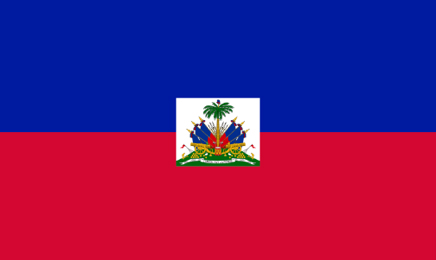
What the administration of President Joe Biden does next will determine if the collapse and total failure of Haiti — a status now accurately assigned to the Caribbean Island nation — sets off a marine mass migration crisis for the United States in the coming weeks.
The first boats full of people fleeing state collapse are on the way toward the Florida shoreline, and the small U.S. Border Patrol station in the string of islands known as the Florida Keys is reportedly warning that it is unprepared and will be quickly overwhelmed if their bosses in Washington allow any to land. Gov. Ron DeSantis has ordered 250 officers and soldiers with sea craft and other state assets to confront a potential crisis.
Interdicted repatriations at sea or rewarding welcomes in Florida is the inflection point test to watch as increasing numbers of boats loaded with Haitians make their way toward Florida through Bahamas waters, according to Royal Bahamas Defense Force Commodore Dr. Raymond King, whose force has interdicted some.
Whether this develops into another full-blown U.S. crisis added to the one at the southern land border, now in its fourth year, depends entirely on how President Biden handles these first incoming vessels. If the administration applies policies it uses at the land border to those entering by sea — letting them land and admitting them all — expect a mass seaborne migration crisis.
Right now, the administration appears to be going with mass seaborne migration, one well-placed U.S. Customs and Border Protection source told me because repatriations by air to Haiti are not currently possible with the island’s airports out of commission.
“The Coast Guard has been given strict orders that if they’re coming out of Haiti, to not interdict, to just follow the boats until they land to make sure they don’t sink,” this source told me. “Since the U.S. has decided they’re not going repatriate them back to Haiti, there’s no reason for them to interdict. So it’s going to be a definite shit show.”
Even if accurate, that could change, especially in a highly contested presidential election year where illegal immigration has emerged as an apex national issue.
The principle at play here is universal, as I explain at length in my book, Overrun: When nations reward illegal entry with long-term admission, large numbers will follow those early trailblazers. That’s why and how the largest mass migration in the history of the United States got underway on inauguration day 2021. The new Biden administration admitted the very first human waves that showed up to test whether or not it would stop, block, and deport them.
As polls show, Americans now know Biden’s Department of Homeland Security went with quick admission and an end to all policies and law enforcement that previously stopped, blocked, and returned.
News that the closed southern border gates had opened wide shot southward down migrant trail and set off at least 10 million migrant journeys that have continued unabated for three years straight.
So the question for Haiti’s 11 million people, and for the United States, is what the Biden government will do with the first boat people.
Over the past year or so, some sailboats overloaded with Haitians have made it to the keys. It’s not clear what became of the passengers. The Biden administration has admitted tens of thousands of Haitians who crossed the southern land border. But in the recent past, the administration also has shown no reluctance to deport Haitian border-crossers by air to their home country, to get their numbers down. In September 2021, that’s how the administration shuttered a massive Haitian camp that had formed on the banks of the Rio Grande in Del Rio, Texas, too.
But the air option is closed for now, as vicious gangs rampage through Haiti’s airports. They’ve also taken over Haiti’s sea ports.
Options other than Biden’s southern border policy are available to the administration.
During past Haitian boat people crises, U.S. presidents have opened migrant camps on the military base at Guantanamo Bay, Cuba. President George H.W. Bush used that option to quell a flow in 1991-1992. For a Kosovo war refugee crisis in 1995, President Bill Clinton set up Guantanamo Bay to take them in. The year before, Clinton organized a multi-national military occupation of Haiti to shut down a gathering boat exodus, and returned the Haitians at sea to a more stable place.
Will Biden opt for any of these paths? Or go with his southern border model?
In an election year like this, where Biden seems to understand his reelection hinges on news drone video of mass migration, the decision portends vast consequences.
